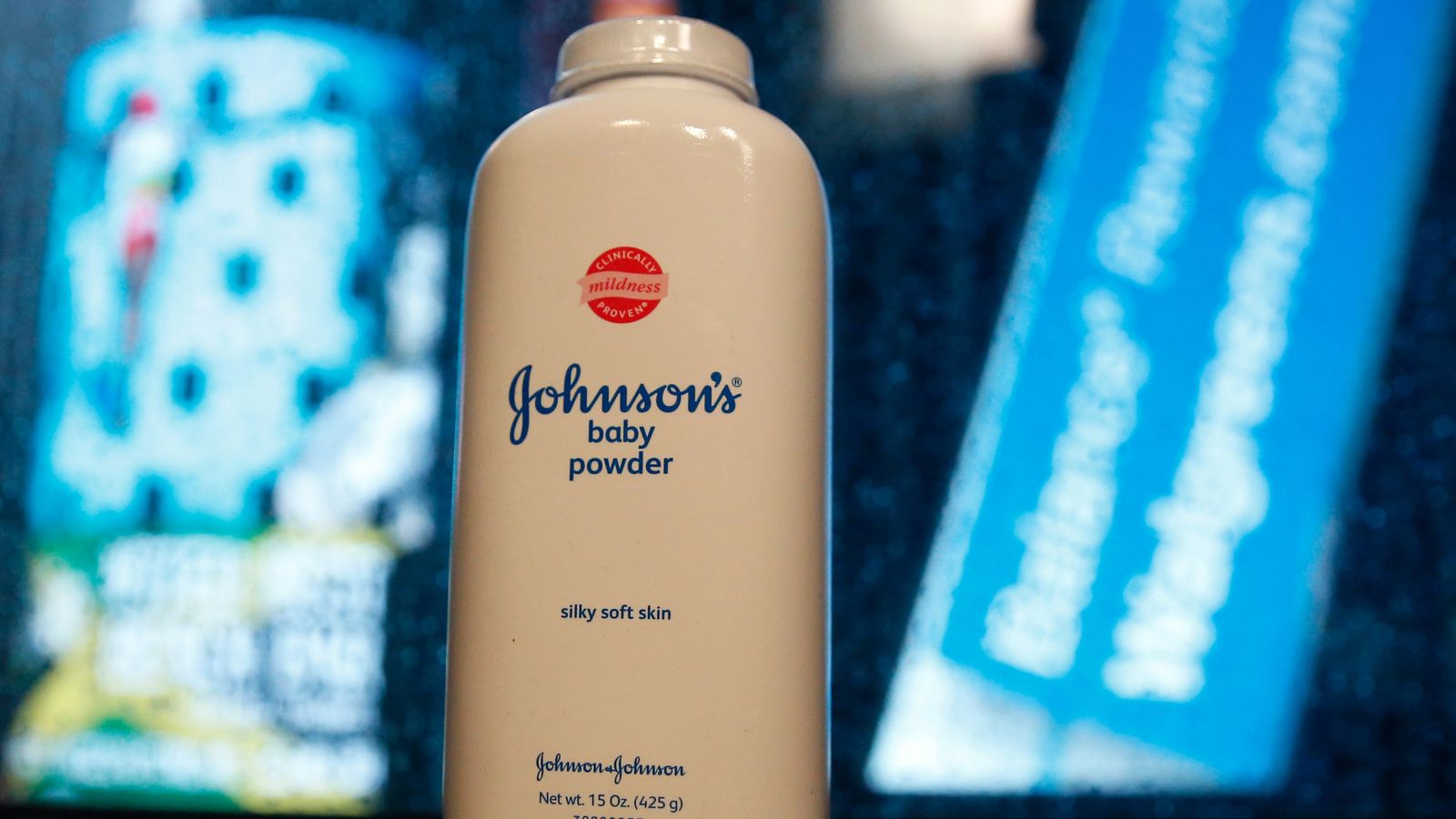The US Supreme Court has declined to hear Johnson & Johnson’s appeal against a $2.12bn (£1.5bn) damages award to women who say they developed ovarian cancer from using the company’s talc products.
The decision means that a ruling made by a Missouri state court stays in place, following litigation brought by 22 women, including 17 from other states.
J&J has argued that the decision to pull the claims together into one trial before a single jury violated the company’s right to due process under the US Constitution.
In response, those acting for the plaintiffs had said that Missouri courts have jurisdiction over out-of-state claims like the ones in this case and that one of the products bought in another state was made in Missouri.
They also said it is common for courts to bring cases together for a trial if they are very similar.
The original case was heard over six weeks in 2018 and the jury found that the company’s talc products contained asbestos and asbestos-laced talc can cause ovarian cancer.
J&J disputes both of these findings and it took the case to the Missouri Court of Appeals.
The appeals court ruled against J&J’s bid to throw out the damages figure, but it did drop two women from the suit and reduce the amount awarded the plaintiffs from $4.69bn (£3.3bn) to $2.12bn.
It also said it was reasonable to infer from the evidence that J&J “disregarded the safety of consumers” and there was “significant reprehensibility” in its conduct.
J&J then went to the Missouri Supreme Court – the state’s highest court – in November but judges there also declined to hear the appeal, meaning the next stop was the US Supreme Court.
The New Jersey-based company said in a statement on Tuesday that there are unresolved legal issues that will continue to be litigated.
“The matters that were before the court are related to legal procedure, and not safety,” it said.
“Decades of independent scientific evaluations confirm Johnson’s baby powder is safe, does not contain asbestos, and does not cause cancer.”
In court papers, J&J had said the Missouri case followed a “winning formula” of bringing claims from other jurisdictions before a single jury which could be prejudiced, resulting in “outsized” damages being awarded.
The company has previously said it faces more than 19,000 similar claims.
Two US Supreme Court judges – Samuel Alito and Brett Kavanaugh – took no part in the action: Justice Alito owns J&J stock and Justice Kavanaugh’s father headed the trade association that lobbied against labelling talc a carcinogen and including a warning label on talc products.
Nine of the plaintiffs in the Missouri case have died since the 2018 verdict.
Talc-based baby powder is no longer sold by Johnson & Johnson in the US and Canada, although it is still available in some other countries.






















